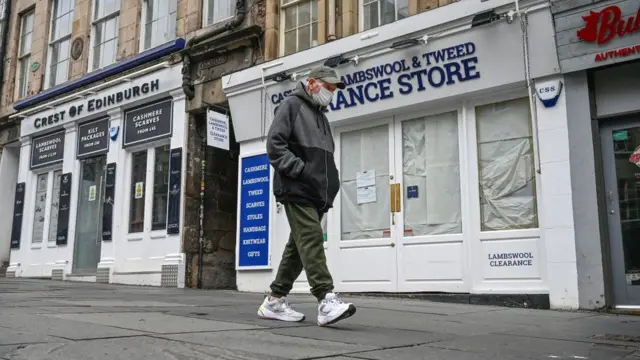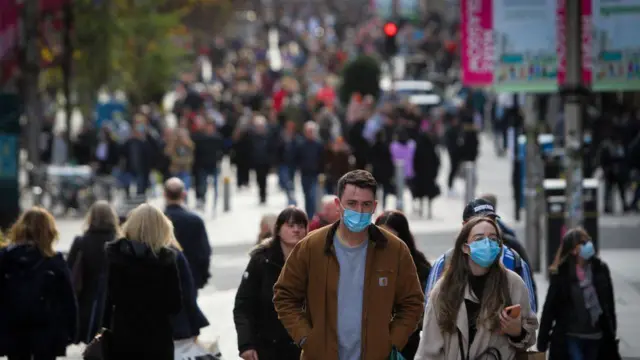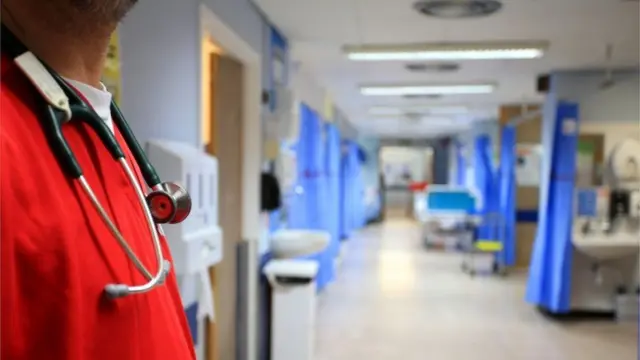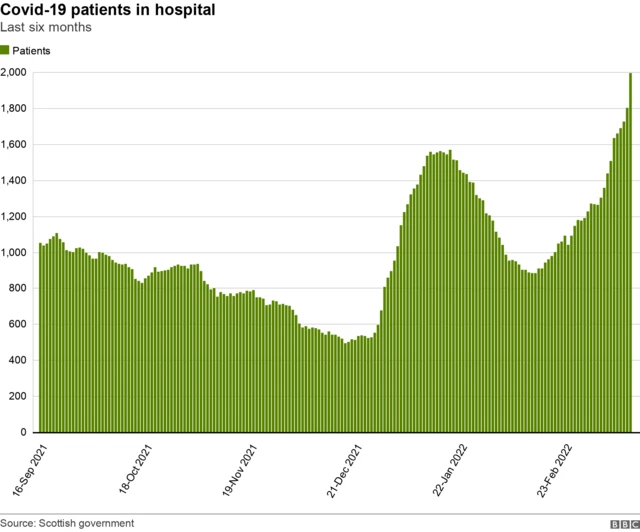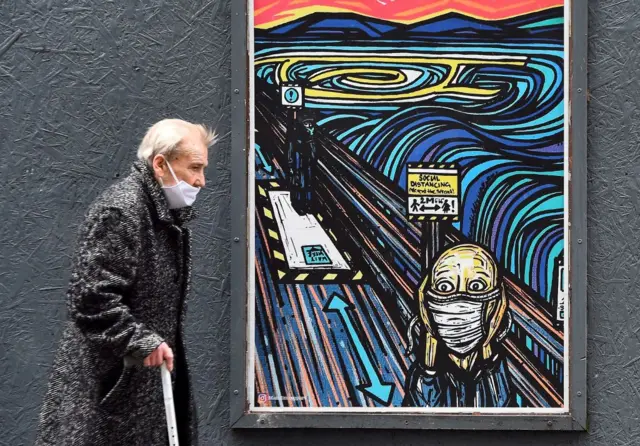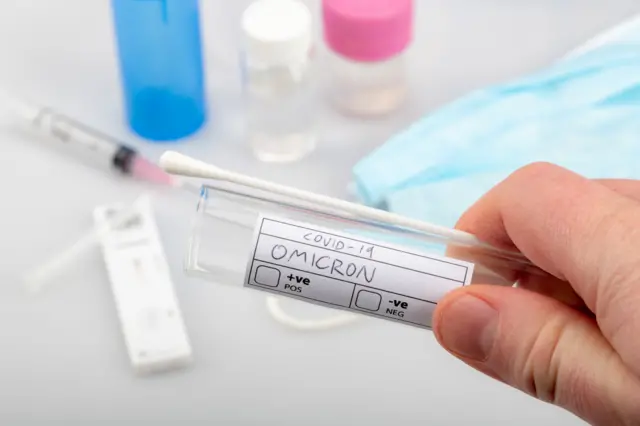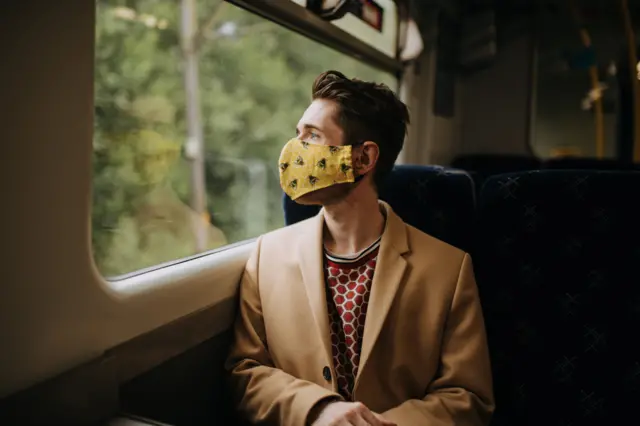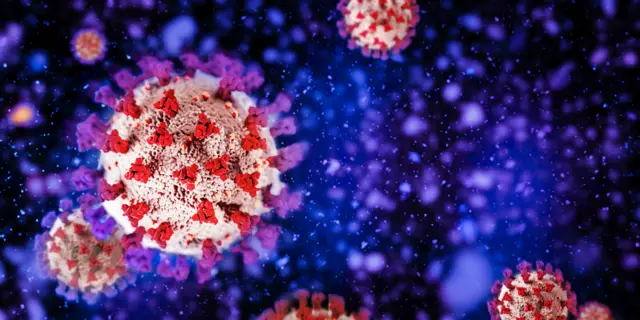Covid-19 Update: The key pointspublished at 15:33 GMT 15 March 2022
- Mask wearing on public transport and in shops will remain compulsory in Scotland for a further two weeks, into early April
- Nicola Sturgeon told MSPs she needed to "ask everyone to be patient for a little while longer on face coverings"
- The first minister explained this is due to a rise in cases of Covid-19
- All other restrictions on businesses and services are to move from legal requirement to guidance from Monday 21 March
- The mask rules will be reviewed again in two weeks, and are likely to be converted to guidance by 4 April.
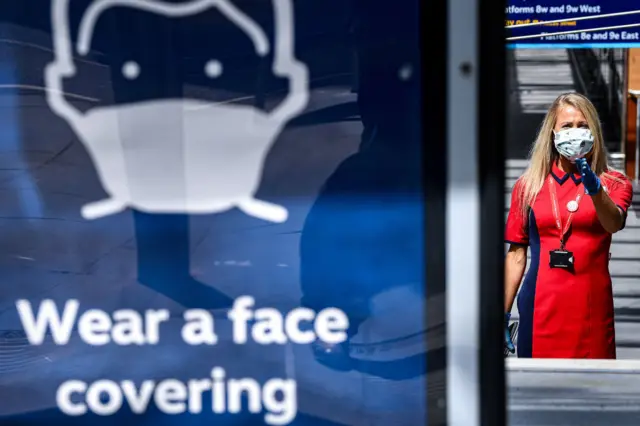 Image source, Getty Images
Image source, Getty Images- Mass testing will be wound down in April, with routine testing and contact tracing to end by May
- The average number of new cases reported each day in Scotland is more than 12,000
- That's up from an average of 6,900 per day three weeks ago
- There has also been a rise in the number of people in hospital with Covid-19, from 1,060 three weeks ago to 1,996 today
- Douglas Ross insisted "we can't stay stuck with Covid rules forever
- Jackie Baillie pressed the FM on plans for testing health and social care workers going forward
- Vaccination and testing of Ukrainian refugees was raised by Alex Cole-Hamilton - the FM said the detail will be given tomorrow
